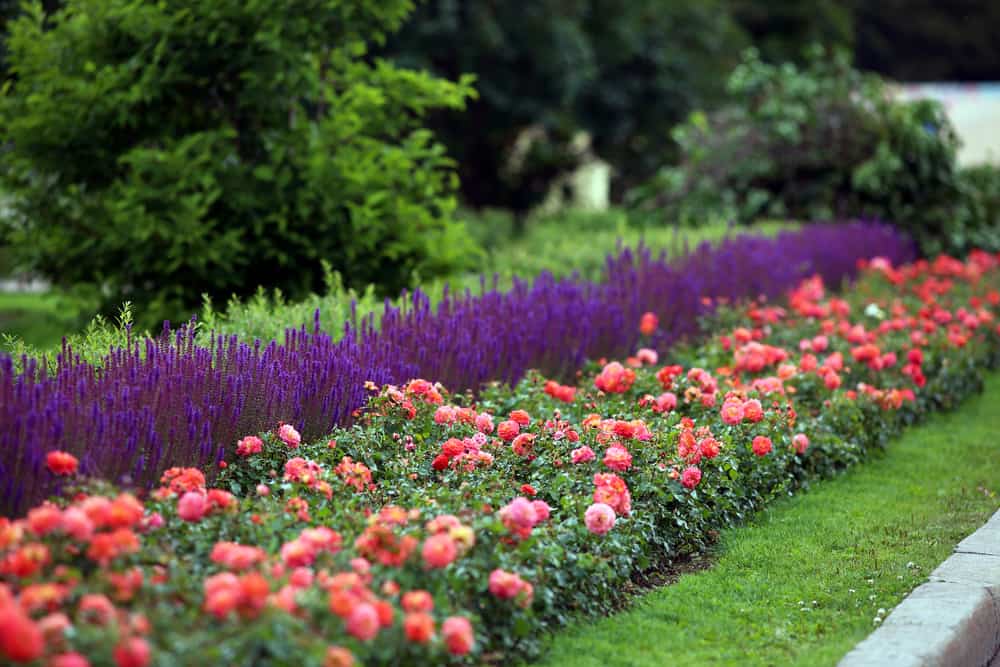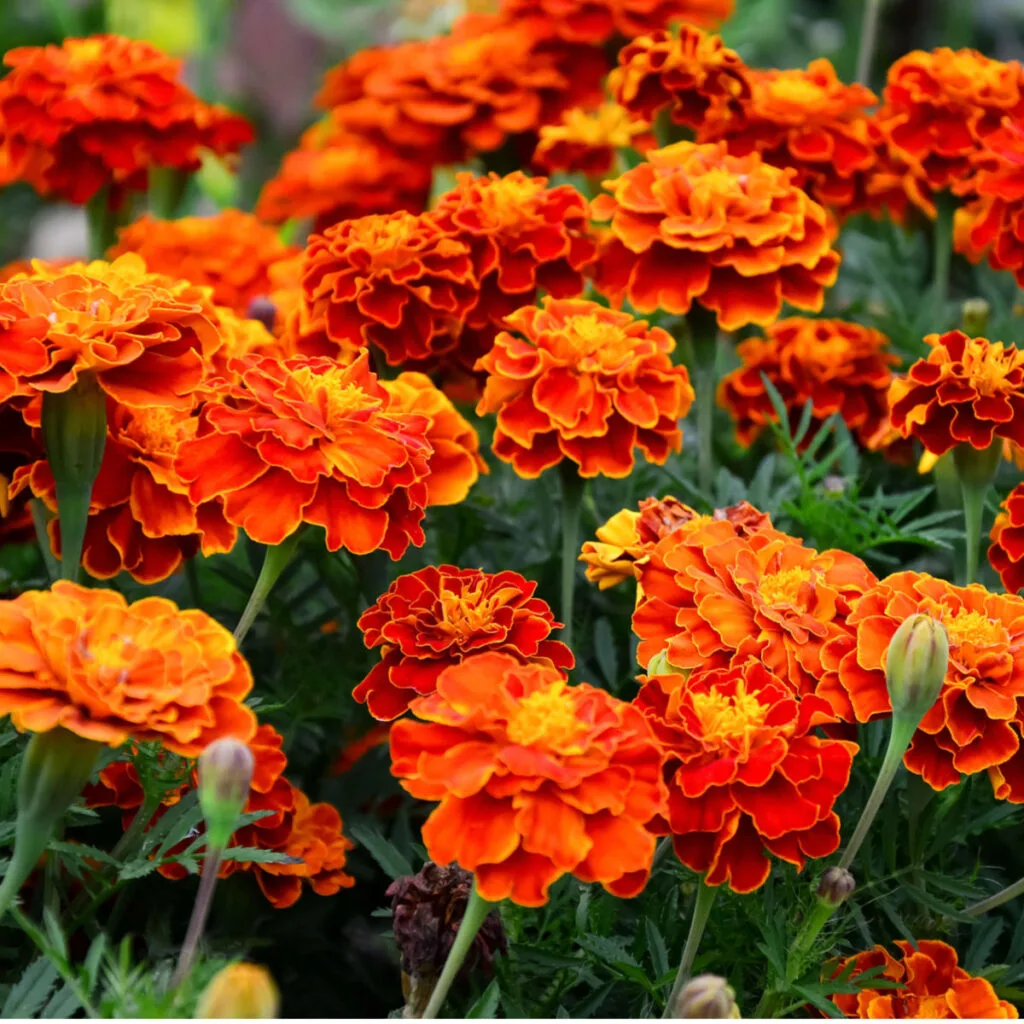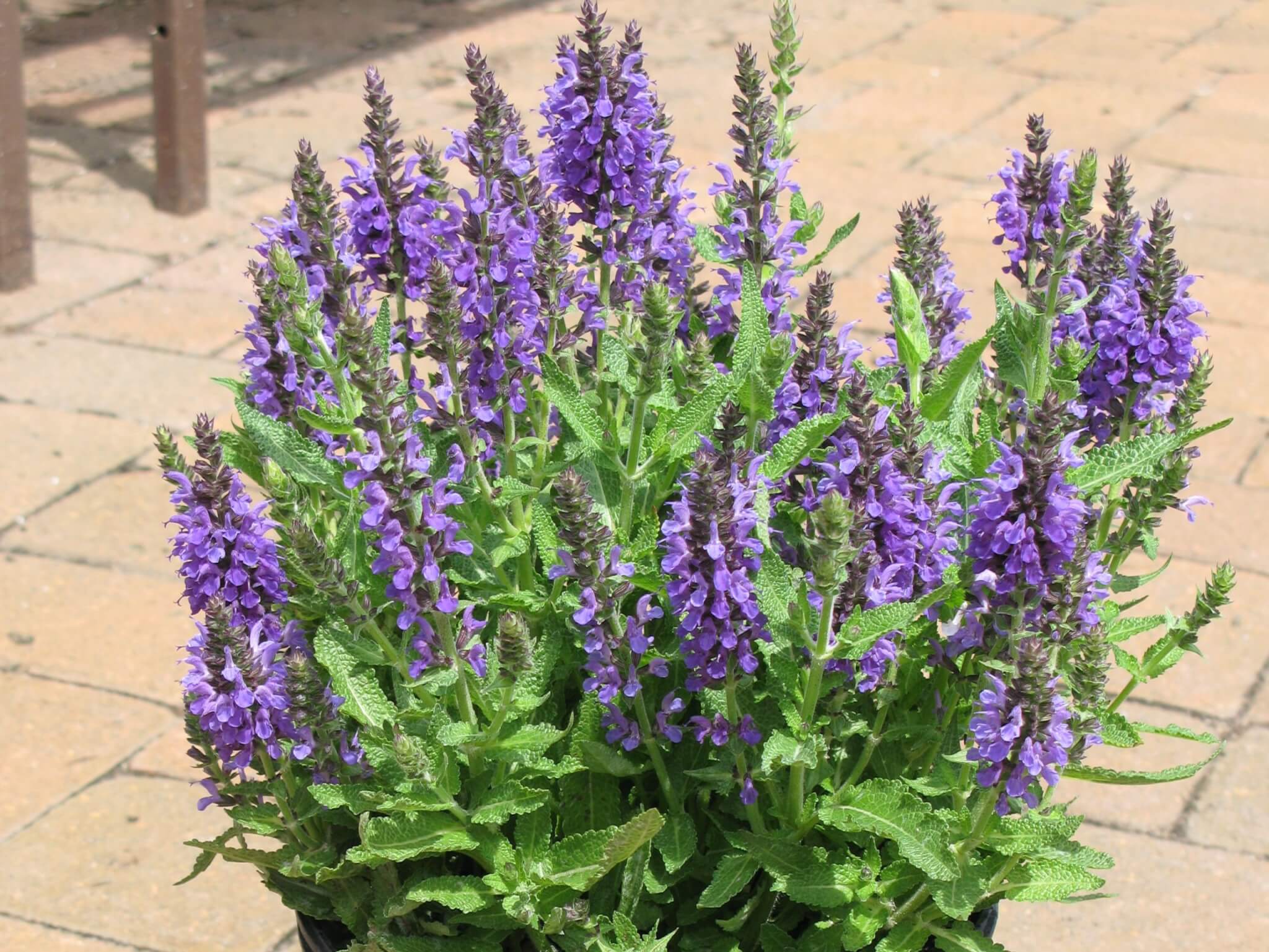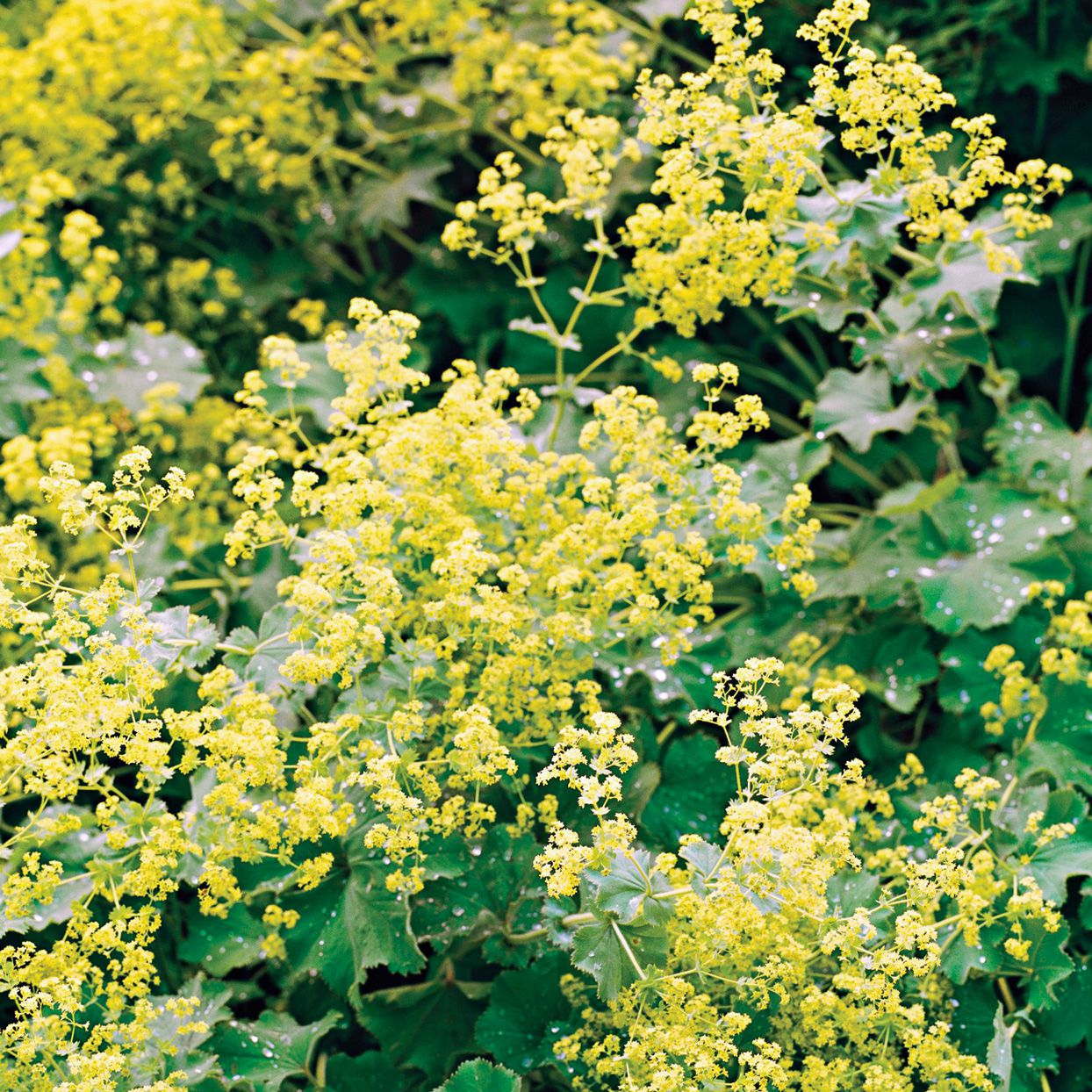Best Companion Plants For Roses - Mix, Match, And Bloom
Boost the health and longevity of your roses with these 25 companion plants that provide natural pest protection, improve soil, and add beauty to your garden.
Nov 17, 20241.1K Shares61.3K Views

Roses may be the centerpiece of your garden, but pairing them with the right companion plants can take their beauty and health to the next level. By choosing plants that complement your roses, you not only create a stunning visual display but also promote a healthier garden ecosystem. These companion plants help keep pests at bay, improve soil quality, and attract beneficial pollinators, all without the need for harsh chemicals.
Here, we’ll take a look at 25 of the best companion plants for roses, organized by their unique benefits like natural pest control, boosting soil health, and attracting pollinators. Plus, you’ll get gardening tipson how to arrange these plants to keep everything growing strong and looking beautiful throughout the season.
What Makes A Good Companion?
A good companion plant for roses helps them flourish while adding beauty and balance to the garden. These plants should match the growing conditions of roses, such as full sun and well-drained soil, while also complementing their appearance. Companion plants like lavender, catmint, and geraniums not only look great beside roses but also provide ground cover, helping retain moisture and hide the bare lower stems.
Understanding how and when to prune rosesis equally important in maintaining a healthy garden. Proper pruning encourages new growth and enhances the plant's overall health. In addition to aesthetics, companion plants can naturally protect roses from pests and diseases. Herbs like garlic and thyme, as well as flowers like marigolds, deter harmful insects without the need for chemicals. With proper spacing and care, companion plants can improve the health and longevity of your roses while creating a more vibrant and pest-resistant garden.
Why Companion Planting Benefits Roses
Healthier Growth And Disease Prevention
Companion plants provide several advantages to roses, including protection from diseases and improved growth. Some plants, like chives and garlic, have natural antifungal properties that help prevent common rose diseases like black spot and powdery mildew.
Others, like lavender, improve air circulation around the roses, reducing moisture buildup, a common cause of fungal infections. Additionally, companion plants can create a more balanced environment by attracting beneficial insects that feed on pests harmful to roses and prevent rose diseasenaturally without chemicals.
Natural Pest Control
One of the biggest challenges with growing roses is dealing with pests like aphids, beetles, and spider mites. Companion plants can naturally repel these insects without resorting to chemical pesticides.
For example, marigolds and catmint release scents that repel pests while attracting beneficial pollinators like bees and butterflies. The beauty of using these companion plants is that they not only help control pests but also add aesthetic value to your garden.
Boosting Soil Quality And Garden Aesthetics
Many companion plants improve soil quality by adding essential nutrients and preventing soil erosion. Herbs like thyme and parsley act as living mulch, helping to retain moisture around your rose bushes.
Deep-rooted plants like comfrey draw nutrients from the subsoil, enriching the topsoil where roses feed. This soil enrichment encourages healthier, more robust rose growth. Moreover, the right combination of companion plants can enhance the visual appeal of your garden, creating a vibrant tapestry of colors and textures.
Companion Plants That Repel Pests
Marigolds
Marigolds are a go-to companion plant for roses due to their pest-repellent properties. The strong scent of marigolds keeps away aphids, nematodes, and beetles that commonly attack roses. Not only do they protect your roses, but their bright, cheerful blooms ranging from yellow to deep orange add a vibrant burst of color to your garden, making them both functional and decorative.
Garlic
Garlic serves as a natural shield for roses, deterring pests like spider mites, aphids, and Japanese beetles. Its pungent odor is unpleasant to many insects, and its antifungal properties help protect roses from diseases like mildew and black spot. Planting garlic near your roses also has the added benefit of improving the flavor of nearby herbs if you’re growing a kitchen garden.
Chives
Chives are another herb that pairs well with roses, offering protection from aphids and other pests. The sulfur compounds in chives act as a natural insecticide, and the lovely purple blooms of chives bring a subtle yet charming accent to the rose garden. Additionally, chives can be harvested and used in cooking, making them a multi-purpose addition.
Onions
Similar to garlic, onions provide pest-deterrent benefits when planted near roses. They repel insects like aphids and thrips, which can damage the delicate leaves and blooms of roses. Onions are also low-maintenance and thrive in a variety of soil conditions, making them a versatile companion for your rose garden.
Catmint (Nepeta)
Catmint, a close relative of mint, is beloved by bees and butterflies but despised by pests like aphids and beetles. Its soft, lavender-blue blooms complement the bright colors of roses, creating a harmonious visual display while ensuring that your roses remain pest-free. The strong aroma of catmint deters unwanted insects, allowing your roses to flourish without interruption.
Companion Plants That Improve Soil And Nutrient Levels
Lavender
Lavender is not only an aromatic delight but also a powerful companion plant for roses. Its deep root system helps improve soil structure by increasing aeration and drainage. Lavender is also drought-tolerant, making it an ideal companion for roses, which thrive in well-drained soil. Its ability to attract beneficial pollinators like bees adds another layer of benefit to your garden.
Thyme
Thyme serves as a living mulch, keeping the soil cool and moist while reducing the growth of weeds. This hardy herb not only supports roses by improving soil health but also fills the garden with its earthy fragrance. Thyme is a great choice for ground cover, adding both functional and aesthetic value to rose beds.
Parsley
Parsley is often grown for its culinary use, but it also plays a significant role as a companion plant for roses. Its deep roots help break up compacted soil, improving water infiltration and root growth for nearby plants. Parsley also attracts beneficial insects that prey on rose pests, making it an excellent addition to your rose garden.
Borage
Borage is known for its ability to enrich the soil with trace minerals, particularly potassium, which roses need for strong blooms. It’s also a fantastic pollinator attractor, drawing bees and other beneficial insects into the garden. Borage's star-shaped, bright blue flowers make it a visually appealing choice as well.
Comfrey
Comfrey acts as a dynamic accumulator, pulling nutrients from deep within the soil and depositing them in its leaves. When its leaves decompose, they release nitrogen and potassium, key nutrients for roses. You can also use comfrey leaves as a mulch around your roses to help retain moisture and enrich the soil.
Companion Plants That Enhance Garden Aesthetics
Salvia
Salvia’s tall, spiky blooms provide a striking contrast to the round, full blooms of roses. Available in rich shades of blue, purple, and red, salvia adds vertical interest to the garden and attracts pollinators like bees and butterflies, which support the health of your roses.
Foxgloves
Foxgloves are tall and elegant, with bell-shaped flowers that provide a dramatic backdrop to shorter rose bushes. Their vertical structure adds height and dimension to your garden, while the blooms come in soft pinks, purples, and whites, complementing the colors of your roses. Foxgloves also attract beneficial insects, making them as functional as they are beautiful.
Geraniums
Geraniums are low-growing plants that help fill in the spaces between rose bushes, providing an attractive ground cover. Their cheerful, colorful flowers enhance the beauty of roses while repelling common pests like aphids. Geraniums are easy to care for and thrive in similar conditions as roses, making them ideal companions.
Delphiniums
Delphiniums add a touch of drama to any rose garden with their tall, stately spires of blue, purple, or white flowers. They create an appealing contrast to the more rounded shapes of roses, offering height and structure to your garden design. Delphiniums also attract pollinators, which help roses flourish.
Alyssum
Alyssum’s dainty, fragrant blooms provide a delicate touch to rose gardens. Its low-growing habit makes it perfect for bordering rose beds or filling in spaces between larger plants. Alyssum helps retain soil moisture while its sweet scent attracts pollinators, adding both beauty and functionality to your garden.
Companion Plants That Attract Pollinators
Echinacea
Echinacea, commonly known as coneflower, is a magnet for bees, butterflies, and other pollinators that are vital for the health of your roses. Its bright, daisy-like flowers in shades of purple, pink, and white add visual appeal while ensuring a thriving, pollinator-friendly environment.
Cosmos
Cosmos are known for their airy, delicate flowers that sway gracefully in the breeze. Their simple beauty belies their usefulness cosmos attract bees, butterflies, and even hummingbirds, all of which help roses bloom more profusely. The long blooming season of cosmos complements the flowering cycle of roses.
Yarrow
Yarrow is a hardy perennial that not only adds texture and color to your garden but also draws beneficial insects like ladybugs and hoverflies. These predators feed on harmful pests that target roses, creating a balanced ecosystem. Yarrow’s clusters of flowers come in a range of colors, adding visual interest to your garden.
Bee Balm
Bee balm’s bright red, pink, or purple blooms are irresistible to bees, butterflies, and hummingbirds. By encouraging these pollinators to visit your garden, bee balm supports the reproductive health of your roses, leading to more abundant blooms. Its fragrant foliage also deters unwanted pests.
Coreopsis
Coreopsis produces long-lasting, vibrant flowers that attract pollinators like bees and butterflies. Their cheerful, sun-like appearance adds a burst of color to your rose garden, and their drought tolerance makes them easy to care for, especially in hot, dry climates.
Companion Plants That Provide Shade And Protection
Shasta Daisies
Shasta daisies offer more than just classic white beauty they provide light shade to the base of rose bushes, reducing the amount of direct sunlight and helping retain moisture. This is particularly helpful in hot climates where roses can become stressed from excessive sun exposure. Shasta daisies thrive in similar conditions as roses, making them a low-maintenance companion. Their long blooming season complements roses, keeping the garden lively even when roses aren’t in full bloom.
Ferns
Ferns are ideal for creating cool, shaded areas in the garden, making them perfect companions for roses planted in partial shade. They thrive in the dappled sunlight provided by taller rose bushes and help maintain soil moistureby reducing evaporation. The lush, green fronds of ferns also provide a textural contrast to the delicate petals of roses, making your garden more visually dynamic. Ferns are particularly useful in gardens with a woodland or naturalistic design.
Lady’s Mantle
Lady’s Mantle is known for its soft, mounding foliage that adds both beauty and function to the garden. The large, dew-catching leaves provide shade at the base of rose bushes, helping to keep the soil cool and moist during the summer months. Lady’s Mantle also produces small, chartreuse flowers that offer a lovely contrast to the rich colors of roses. In addition to its protective benefits, Lady’s Mantle is easy to grow and requires minimal care, making it a practical and attractive choice for rose gardens.
How To Arrange Companion Plants Around Roses
Arranging companion plants around roses is all about balance and functionality. Taller plants like foxgloves or delphiniums should be positioned at the back of rose beds, creating vertical interest without overshadowing the roses. Low-growing companions such as thyme or alyssum work well as ground covers at the base of roses, keeping roots cool and hiding bare stems.
Rose careinvolves placing herbs like lavender or catmint between bushes for pest control and beauty. Proper spacing and grouping by water needs ensure a healthy, well-balanced garden with good air circulation.
FAQs
What Are The Best Companion Plants To Repel Pests Around Roses?
Plants like marigolds, garlic, and chives are excellent natural pest repellents. Their strong scents deter common rose pests like aphids, beetles, and mites, offering protection without the need for chemical pesticides.
Which Plants Improve The Soil For Rose Bushes?
Lavender, borage, and comfrey are top choices for enriching soil. They help improve soil structure, add essential nutrients, and increase moisture retention, all of which support the health of rose bushes.
Can Companion Planting Help With Rose Diseases?
Yes, companion plants like garlic and chives have natural antifungal properties that help prevent diseases such as black spot and mildew on roses. These plants can enhance the overall resilience of your rose garden.
Do Pollinator-attracting Plants Help Roses?
Absolutely. Pollinator-attracting plants like echinacea, bee balm, and yarrow bring bees, butterflies, and other beneficial insects to your garden, aiding in the pollination process and improving the health and bloom frequency of roses.
What’s The Best Ground Cover For Roses?
Thyme and alyssum make great ground cover companions for roses. They help suppress weeds, retain soil moisture, and offer a contrasting aesthetic to the vibrant blooms of roses while attracting pollinators.
Conclusion
Creating a vibrant rose garden is more than just about selecting the right roses; it’s about fostering a healthy ecosystem where each plant plays a role in enhancing the others.
By incorporating companion plants that repel pests, improve soil health, and attract beneficial pollinators, you give your roses the support they need to bloom in all their glory. The beauty of companion planting is that it allows you to cultivate a garden that is not only visually stunning but also environmentally sustainable.
Are you ready to elevate your rose garden? Experiment with different companion plants and share your experiences with us. We’d love to hear about the combinations that worked best for your roses!
Jump to
What Makes A Good Companion?
Why Companion Planting Benefits Roses
Companion Plants That Repel Pests
Companion Plants That Improve Soil And Nutrient Levels
Companion Plants That Enhance Garden Aesthetics
Companion Plants That Attract Pollinators
Companion Plants That Provide Shade And Protection
How To Arrange Companion Plants Around Roses
FAQs
Conclusion
Latest Articles
Popular Articles


